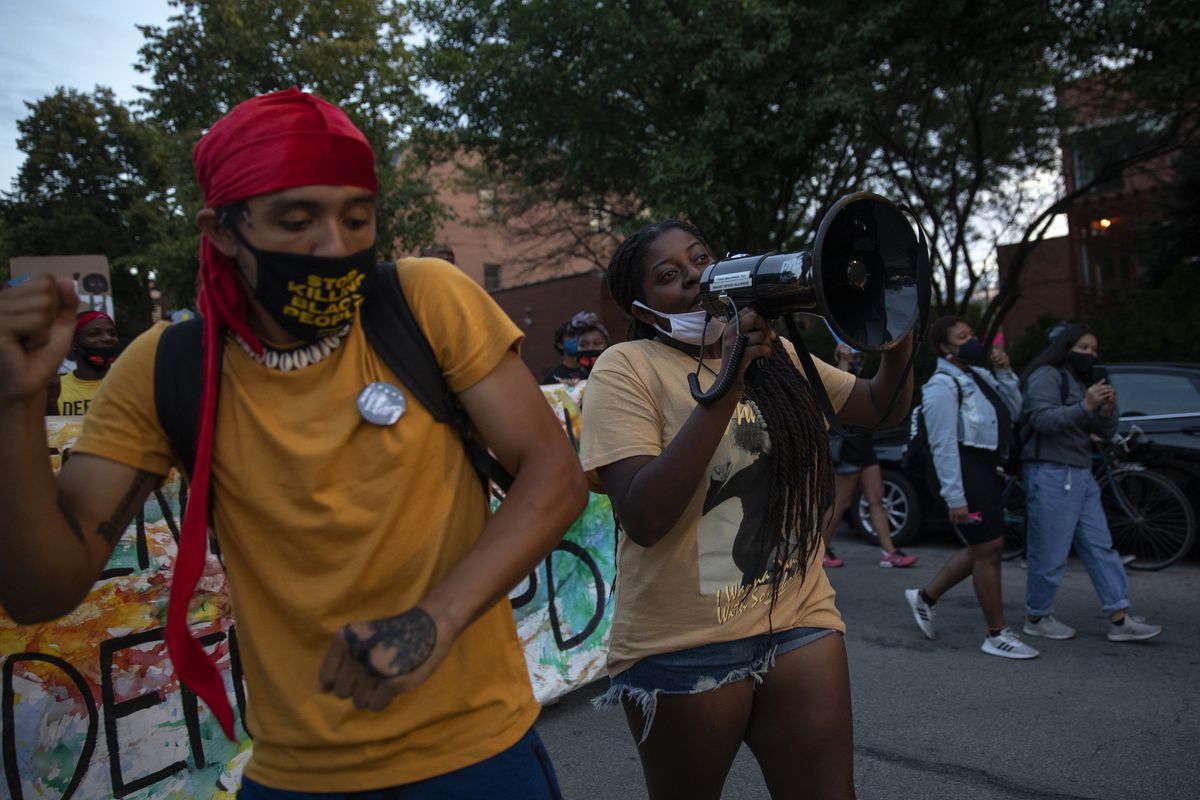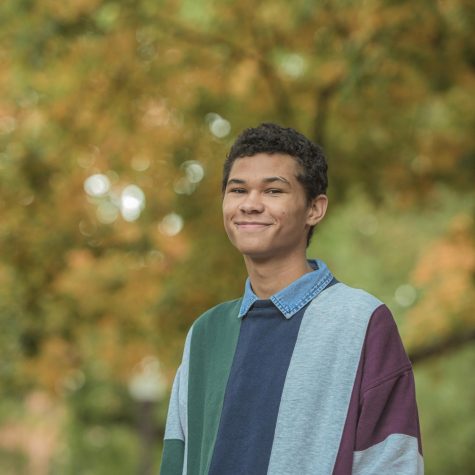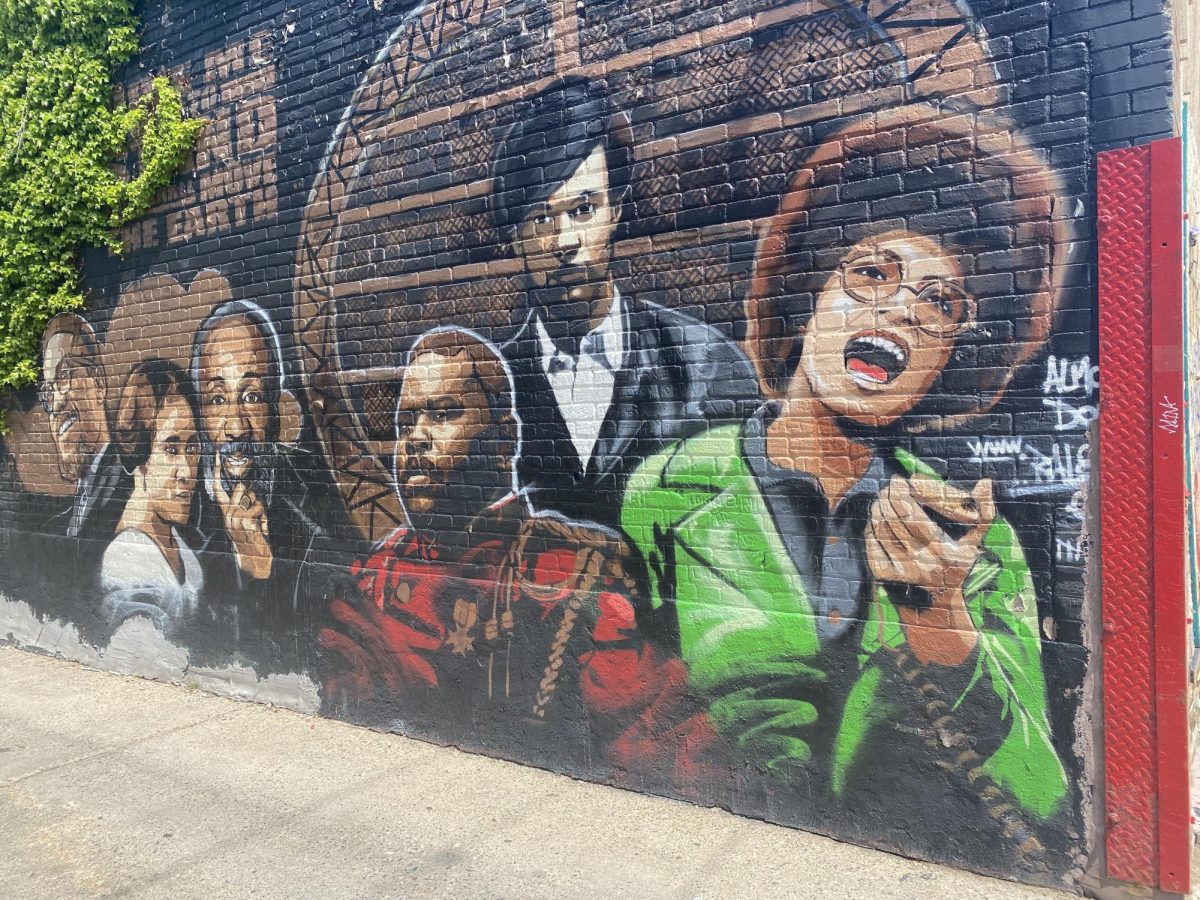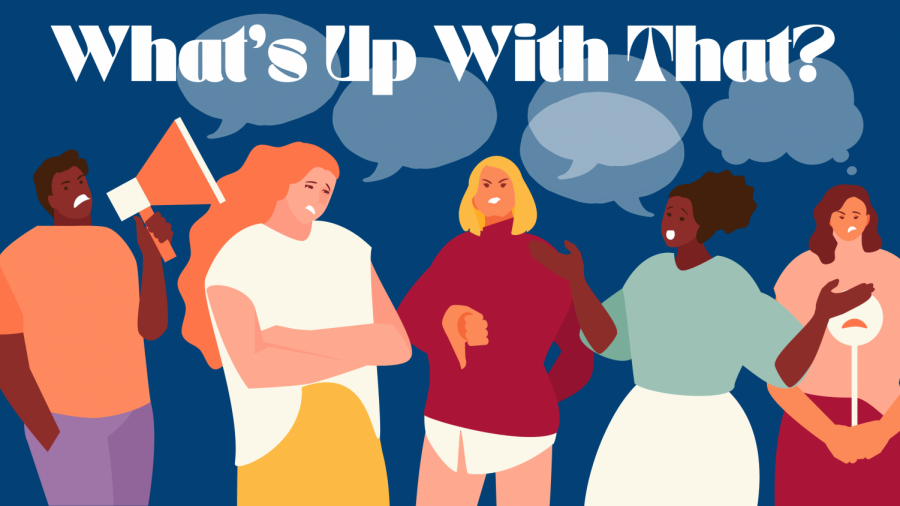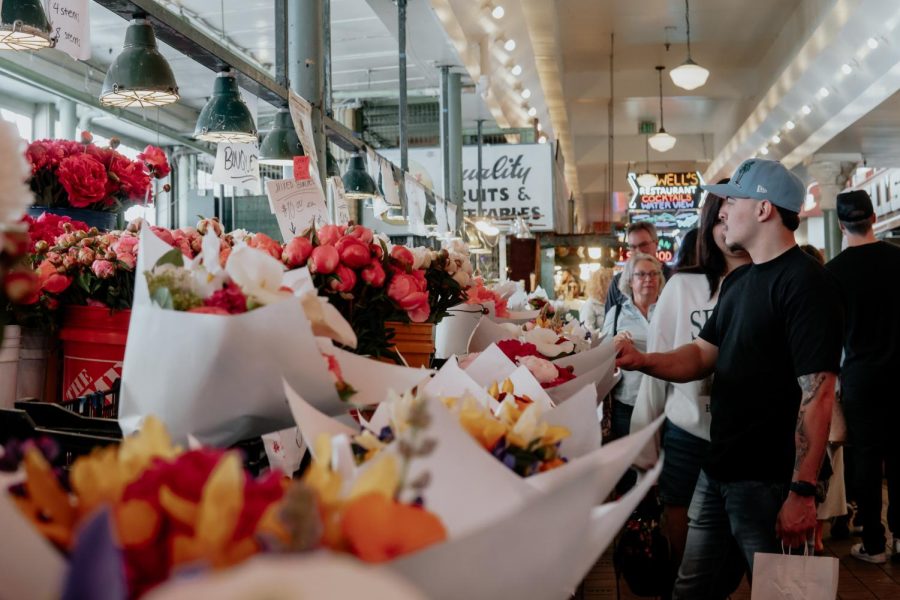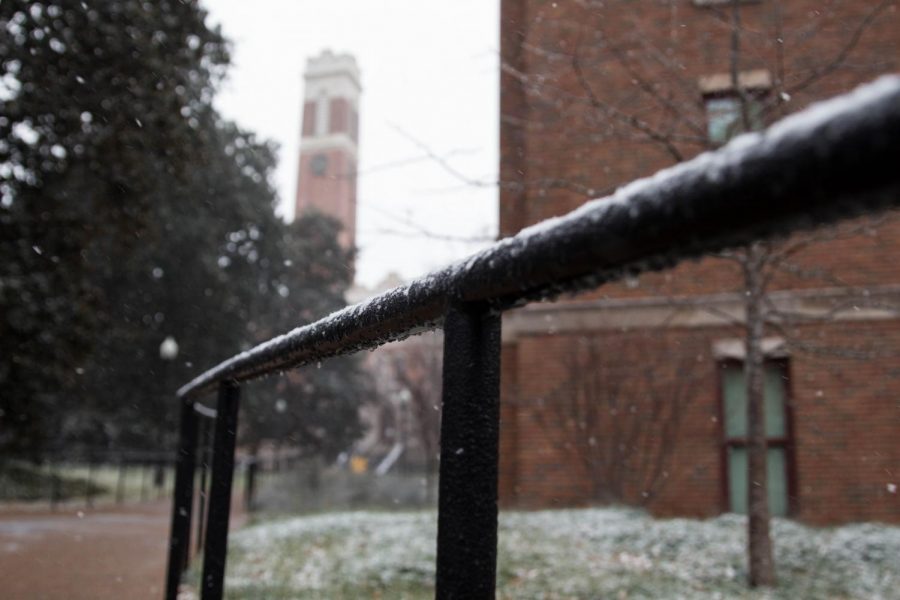Although August would have marked the beginning of Jalen Kobayashi’s sophomore year at Vanderbilt, the reality of leaving his hometown of Chicago to spend another semester in Nashville seemed unlikely.
For Kobayashi, the reasoning for taking a gap year went even beyond concerns surrounding the pandemic. As a leader in the youth violence prevention organization GoodKids MadCity (GKMC), he has devoted himself to educating and mobilizing with members of his community.
Kobayashi’s role in the organization focuses on violence prevention and uplifting young people ages 14 to 19 through lessons on acceptance and equality.
“[GKMC] is a multi-chaptered organization through the radical, Black, abolitionist, queer feminist lens that serves to restore repair and transform our communities,” Kobayashi said.
His decision to take the year off manifested itself early in his time at Vanderbilt.
“I came back for fall break and went to two [direct] actions and I was like, ‘Oh, I’m never going back to Vanderbilt again,’ because I came back to Chicago and not only was I learning but I felt so loved,” Kobayashi said. “I felt what I had been lacking at Vanderbilt, so going back [to school] was extremely jarring.”
Although Kobayashi expressed gratitude for his time at Vanderbilt, he felt as though staying at school was isolating him from those in Chicago that needed him more. The separation between the organizing scene at home and the life he was leading on campus was apparent.
“For me these issues are pressing because I’m really from Chicago, I’m really from these blocks, I’m really from these communities, I’m really in these communities doing this shit that people at Vanderbilt are learning about,” Kobayashi said. “If I go to college right now, I’m not letting anybody down but the community I said I was gonna come back to.”
He spoke about his involvement in writing a grant to fund a city ordinance referred to as “The Peacebook.”
The Peacebook is a grant proposal, calling for 2% of funds from CPD to be reallocated to run programs to stipend peace commissions, resource community spaces and other services.
Grant funding and writing are uncharted territory for most people Kobayashi’s age, and for this reason he acknowledged some institutional help from Vanderbilt faculty and connections would be of use to him. Nevertheless, he maintained that the approach he is taking is the right one as it allows him to be closeby to his cause.
“At Vanderbilt I could have already gotten this grant if I had had those talks with advisors and stuff, but I wanted to do this a different way,” Kobayashi said. “I wanted to tell people that it’s ok to do it a different way and not feel like you have to go to college.”
https://twitter.com/JalenKobayashi/status/1312087756869337094
Although Kobayashi said he is not opposed to returning back to school down the line, he finds he is still able to get educated and wants others in his community to know that they can do this too.
“The best way to educate yourself is to imagine what your life would be like if everything was perfect for you. How do you define your idea of safe, secure and love,” Kobayashi said. “Once you identify those then you can really get into—OK am I more utilitarian? Am I more humanitarian? Or more anarchic? Do I believe that there should be no government? Or do I believe that we’re all sovereign individuals?”
As a leading figure in the Chicago organizing scene, Kobayashi’s image has not gone unnoticed by the media. Segments of his speeches have made their way onto national news, with one speech even being discussed by Fox News host Tucker Carlson. Kobayashi said he considers this media attention as largely misrepresentative and diminishing of his cause.
“They don’t talk about abolition, de-incarceration, transformative justice—they just talk about how we’re out here doing this action and ‘Look at these Black kids, they’re mad’ and ‘Look at them yelling in the street.’ That’s quite literally how all of our coverage has been,” he said. “Even as progressive as a lot of these journalists seem to be, even though [their] intentions are in the right place, [they’re] not sensitive to what is really going on.”
The focus on abolition, de-incarceration and transformative justice are of paramount importance to Kobayashi.
“Abolition benefits white people as much as it benefits Black people as much as it benefits Brown people. We all have to recognize we have been so miseducated and misled to believe we benefit somehow from this system,” Kobayashi said. “The future looks like we finally took time to recognize that we are all human, and we finally took time to read the manuals by people who have done the scholarship and fellowship to understand that race is a construct created in capitalism, and therefore we have to abolish both.”
These beliefs are in action every time Kobayashi makes the decision to protest alongside GKMC.
The shooting of Ariel Roman on February 28, an unarmed man targeted by police for walking from one train car to another (a violation of a city ordinance in Chicago), was one instance where Kobayashi took action.
The incident was interpreted by many as another unfortunate example of excessive police force, with Chicago’s mayor Lori Lightfoot noting the disturbing nature of the video accounts.
Alongside other members of GKMC, Kobayashi helped plan a rally to protest the shooting of Ariel Roman and advocate for other longstanding goals, such as removing law enforcement from Chicago public schools. Kobayashi said that an hour before the protest was set to begin, police were prepared, lining stretches of the city, including the subway system.
“That rally was very pivotal for me because it showed me how under-surveillance I was, to a point that I never understood before. We set this rally up and put it on social media, we didn’t say we were gonna hop the trains,” he said. “We said that if you wanted to do that you could, but we didn’t say that we were going to try to do that.”
Organizing in the shadow of what Kobayashi considers to be law enforcement surveillance of his cause has been unsettling. Luckily Kobayashi is surrounded by good company, with his community of peers in GoodKids MadCity.
Kobayashi described the kinds of weekly service and lessons that GKMC engages in, from general goodwill opportunities to spearheading educational lessons.
“Tuesday through Thursday we pass out food to these communities. [We] walk people to their houses with groceries and then [we] all attend a mandatory workshop after that, either focusing on masculinity and how we can transform it focusing or on gender violence, patriarchy or homophobia,” Kobayashi said.
The topics covered in groups can be uncomfortable at times, but as a leader, Kobayashi welcomes the responsibility of dealing with members who may be unwelcoming of new ideas. His approach to leadership places specific emphasis on the commonalities between himself and other GKMC members, he said.
“As a leader, I constantly have to be humble. I have to constantly think about how it’s not about me. A leader should not be in front; a leader should be led by their people,” Kobayashi said.
In the meantime, Kobayashi said he is putting his energy into being an activist, a pursuit that extends to his other interests as well, notably music. Releasing songs on major streaming platforms under the moniker Jaefkae, Kobayashi writes trues stories from the world around him.
“My music is homage to my community. My music is all owed to Chicago. It is in tandem with the work I do to repay my city for blessing me like it does,” Kobayashi said.
Although not all of his songs are centered around activist causes, Kobayashi is interested in Immortalizing the experiences of himself and other members of his community in song. Song titles like “Chi Kid” are clear nods to the beloved city where he was born and raised. He also cites his song “Want My Doh” as expressing some of the “why” behind intra-community violence.
“My music is investigative in the nature of going into the community as a member—not as an explorer, not as a taker, not as a usurper—but as somebody who is literally from these communities,” he said.
With so many stories to be told, Kobayashi is keeping himself in the center of the action at home in Chicago. Even though he is breaking from the traditional educational route he was originally pursuing, he is still learning—learning about the causes he cares about, how to lead and how to incite change.
“I’m finding that there’s actually a lot of promise and a lot of hope for us as organizers and just in general in Chicago and everywhere as Black people,” he said.


